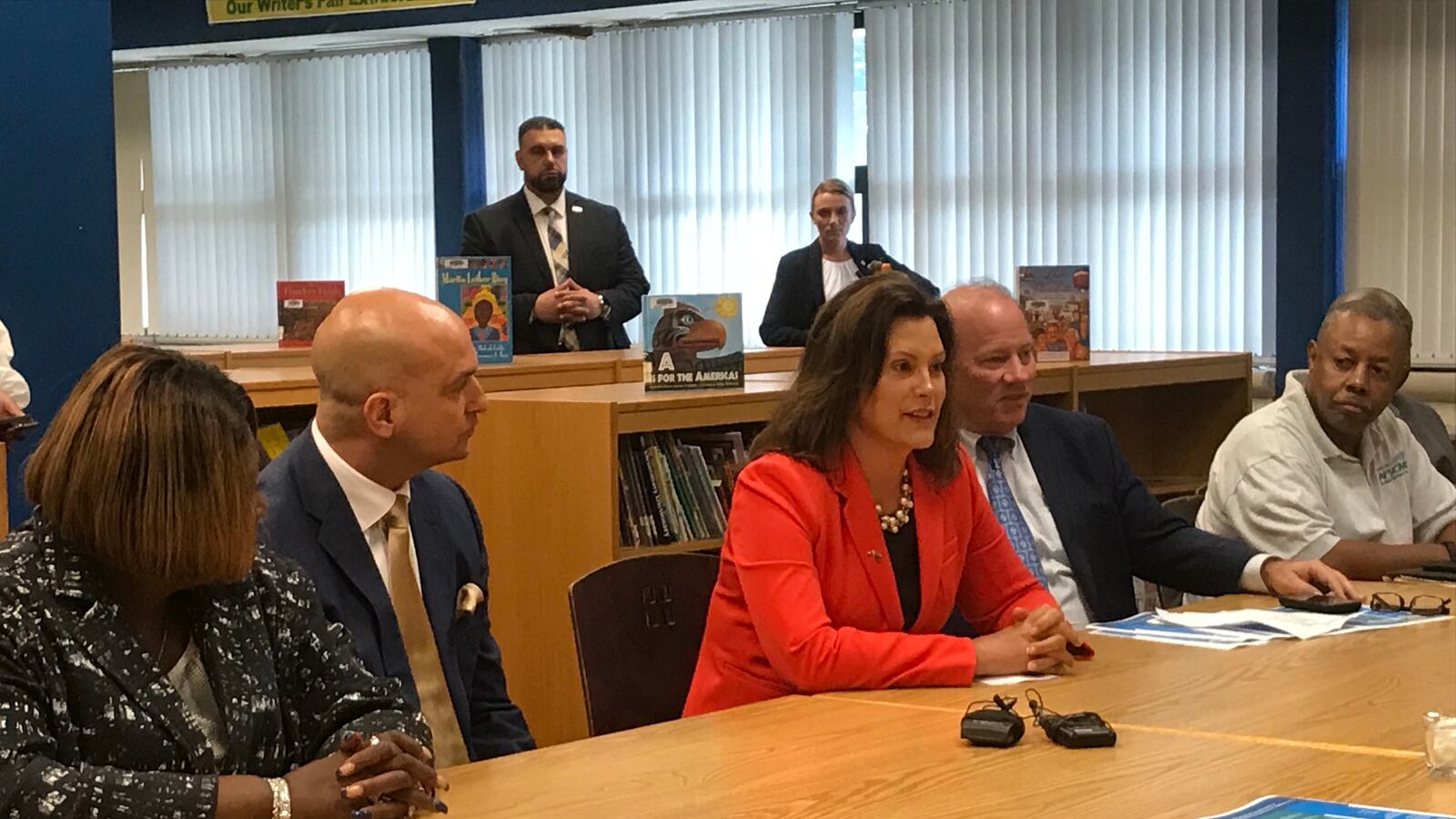Superintendents in some areas of the state are reporting that teachers, counselors, and school psychologists aren’t getting hired, and negotiations between unions and districts have slowed down.
Why? Because Republican lawmakers and the Democratic governor, Gretchen Whitmer, can’t agree on a K-12 budget proposal for the 2019-20 school year.
During a conference call with reporters Tuesday, a handful of superintendents from the Detroit and Grand Rapids areas said local districts are holding off on making some hires because of uncertainty about how much money they’ll receive.
Michael Shibner, superintendent of Rockford Public Schools, said the uncertainty also has led to delaying a special needs program and arts and sports programs in his district until at least after Oct. 1.
Meanwhile, a recent survey from a Lansing-based nonprofit found that many districts have reduced supply budgets, deferred maintenance, or delayed filling open positions because the schools budget is still not final for the upcoming school year, said Randy Liepa, superintendent of the Wayne County intermediate school district, which supports Wayne County districts including Detroit.
During the eight years of Republican control over all levels of state government prior to Whitmer’s election, Republican Gov. Rick Snyder prided himself on getting the budget done earlier than previous governors. But in the era of divided government that has emerged since Whitmer’s election in 2018, coming to an agreement on funding priorities is proving to be more difficult.
The superintendents slammed Republican leaders in the state Legislature for years of what they called inadequate K-12 education funding and for not yet reaching a consensus on this year’s school aid budget.
Liepa said K-12 education funding in Michigan is still below 2008 levels in many districts despite years of incremental increases under Snyder. Liepa called on GOP lawmakers to approve Whitmer’s recommendations.
“We’re anxious to have this resolved,” Liepa said. “We’re anxious to see that there’s a first big step here moving toward what we need for our kids.”
State officials have already started preparing in case the GOP-led Legislature and Whitmer’s office fail to agree on a budget by the end of September, potentially causing a government shutdown, according to the Detroit News.
Whitmer has proposed a $507 million K-12 education budget that will also distribute funding differently than in the past, offering more money to students who are more expensive to educate, including at-risk and special needs students.
The Senate has proposed a $410 million school budget that would be the equivalent of a $120-$180 per-pupil funding increase, while the House version offers a slightly smaller increase.
Neither Shane Hernandez, a Republican who chairs the House Appropriations Committee, nor a spokeswoman for Senate Majority Leader Mike Shirkey could immediately be reached for comment.
School districts are required to adopt a budget by the end of June. That means they had to make assumptions about the kind of state aid they’ll receive.
Detroit Superintendent Nikolai Vitti told Whitmer — during an event Tuesday at the Charles H. Wright Academy of Arts and Science — the district’s budget assumes a state aid increase that is about halfway between what the governor proposed and the Senate approved.
Vitti, too, urged both sides to talk, saying an unwillingness to negotiate “is irresponsible,” and the lack of a state budget, “is putting us in a place of paralysis right now.”
Whitmer, prior to a roundtable event with a friendly audience of Detroit educators, urged lawmakers to negotiate. She said she won’t sign a budget that doesn’t seriously address schools and roads.
“This is a dire situation for school districts,” Whitmer said. “I’ve been working day and night for six months to get this budget done. These guys have been on vacation. It’s time for them to come back and get serious and put a real alternative on the table.”
The House and Senate have been on legislative break, as is the custom during the summer months in Michigan.


